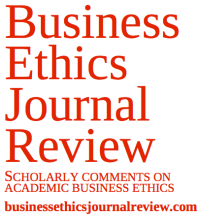 Is the only thing worse than pharmaceutical patents or sovereign immunity the combination of pharmaceutical patents and sovereign immunity? Pharmaceutical company Allergan last week sought to fend off a prior-art challenge to its patent on Restasis, a solution for alleviating the effects of dry eyes, by transferring the patent to an American Indian tribe, the St. Regis Mohawk Nation. The transfer in no way affects the merits of the prior-art challenge, but undermines the challenge procedurally as the St. Regis Mohawk Nation can quash the proceedings on grounds of sovereign immunity—the legal doctrine that places political states beyond the jurisdiction of other political states’ courts. Allergan is paying an up-front and ongoing fee to the St. Regis Mohawks for use of their sovereign immunity shield.
Is the only thing worse than pharmaceutical patents or sovereign immunity the combination of pharmaceutical patents and sovereign immunity? Pharmaceutical company Allergan last week sought to fend off a prior-art challenge to its patent on Restasis, a solution for alleviating the effects of dry eyes, by transferring the patent to an American Indian tribe, the St. Regis Mohawk Nation. The transfer in no way affects the merits of the prior-art challenge, but undermines the challenge procedurally as the St. Regis Mohawk Nation can quash the proceedings on grounds of sovereign immunity—the legal doctrine that places political states beyond the jurisdiction of other political states’ courts. Allergan is paying an up-front and ongoing fee to the St. Regis Mohawks for use of their sovereign immunity shield.
Legal issues aside, ethically speaking what does this say about pharmaceutical patents, about sovereign immunity, or about their combination?
>>>
LINK: Allergan Pulls A Fast One (by Derek Lowe for Science Magazine’s In the Pipeline blog)
One of Allergan’s products is Restasis, used for dry eyes, which is an opthalmic formulation of cyclosporine. It’s a valuable part of their portfolio (net revenues of more than a billion dollars per year), but it’s under threat from a patent challenge. Mylan and Teva are both trying to force the drug off patent before its appointed time (which is about 2024). Last December, the US Patent Office granted an inter partes review of the relevant patents, a decision that did not go down well with Allergan or its investors. That form of patent review has been around since 2011 and the America Invents Act, and its purpose is specifically for prior art objections to a granted patent.
…
Generic challenges to lucrative patented drugs are a regular feature of life in the business, but what happened next wasn’t (or not yet). Allergan announced that they had transferred the patent rights for Restasis to the St. Regis Mohawk Indian Nation, for an up-front payment and continuing annual payments to the tribe. Why would one do such a thing? Well, it turns out that whatever patented IP owned by the tribe is protected from inter partes review challenges by their sovereign immunity. The Mohawks are, then, immediately moving to dismiss the PTO’s actions. Let me tell you, on Friday afternoon the sound of people all over the biopharma world slapping their foreheads was echoing through the boardrooms, office suites, and hallways.Is this going to hold up?
What do you think?




Recent Comments